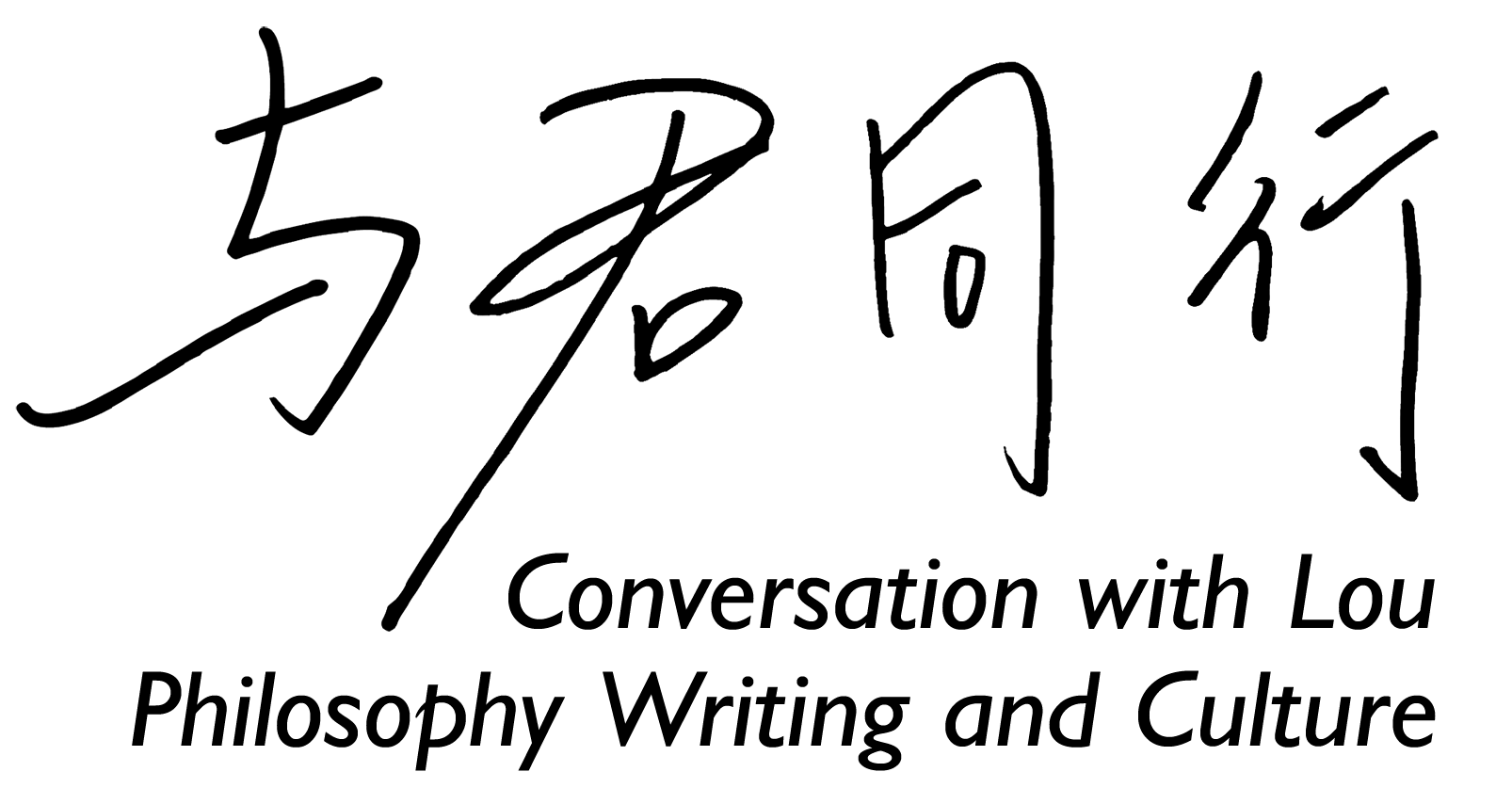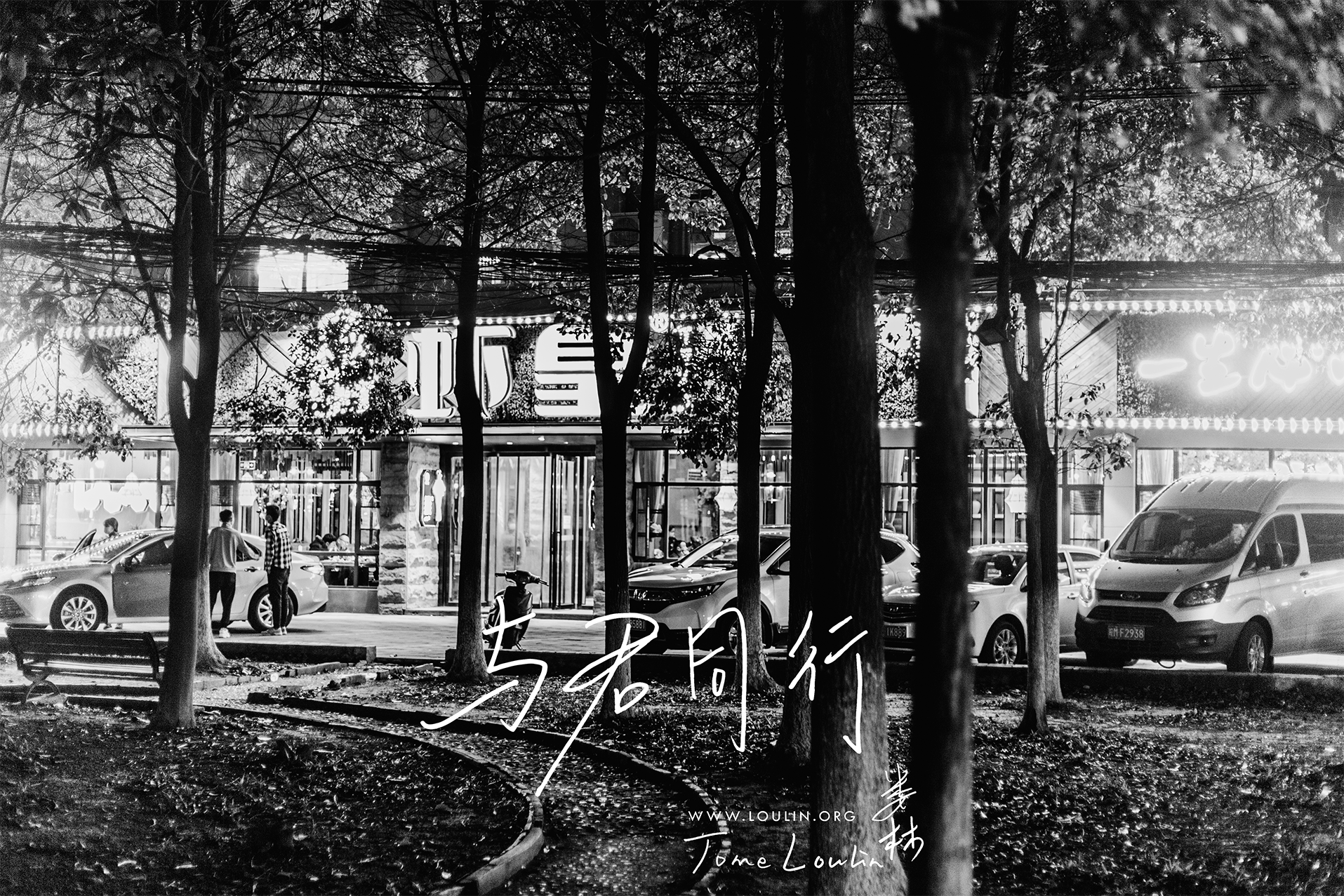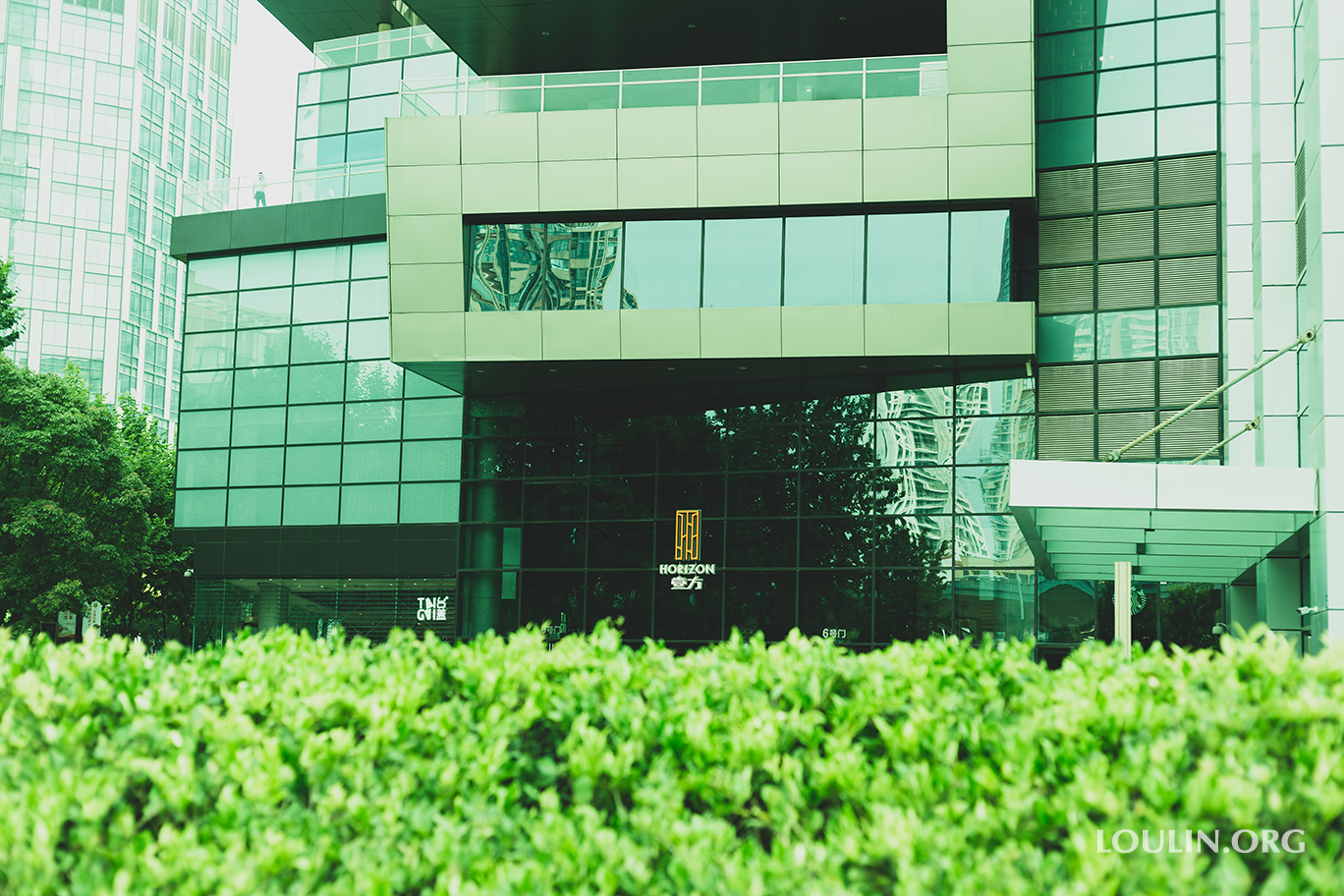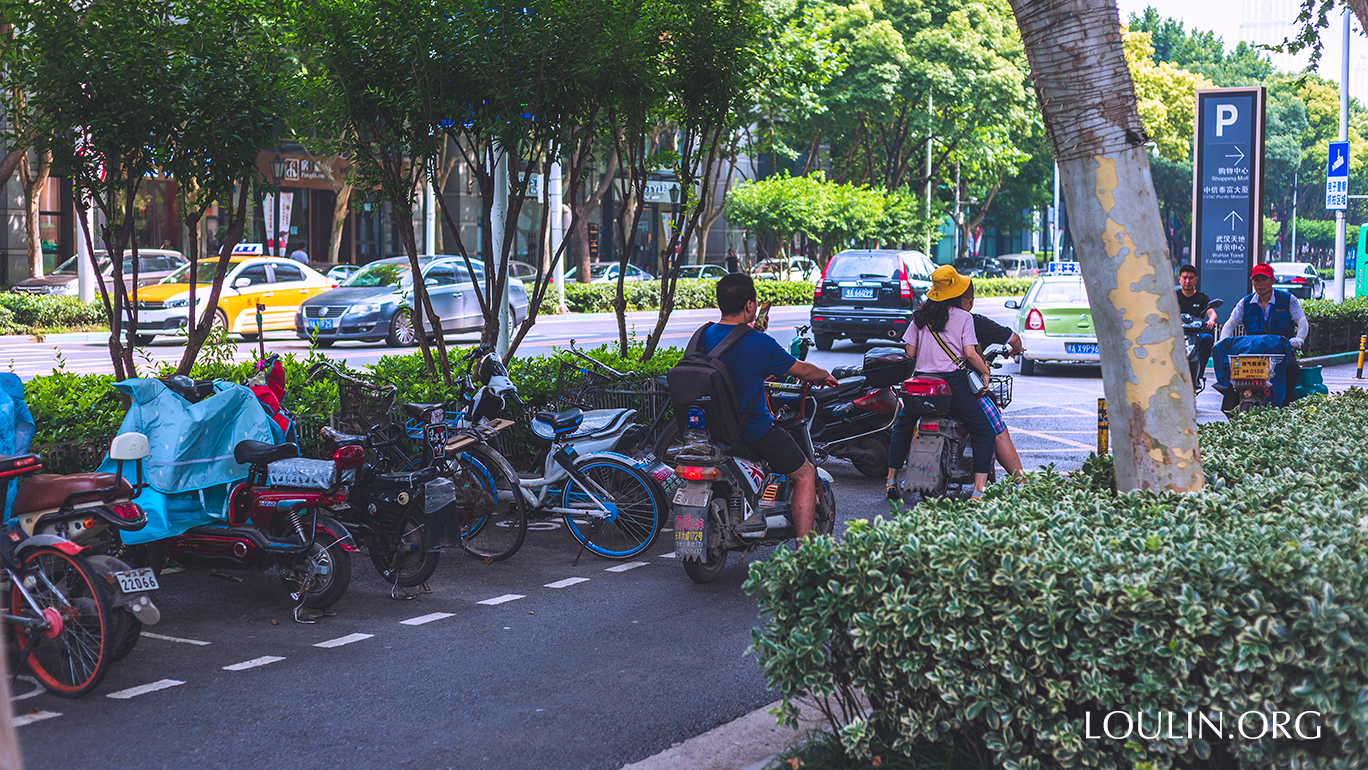There have been stores open over nights; not anymore, at least for now. Walking on a lightless road near a river park in Qianjiang, a city in Hubei province, I rely on the flashlight from my phone lest I fell into some hidden pit holes. Darkness. People walking on the riverside were silent; only footsteps and hiss of cloth frictions could be heard. Not a single pedestrian opened flashlight except me.
Stone-made railings around the river bank had just gone through an installation of decorative lightenings conducted by the city beautification bureau to beautify the park’s night view several months ago. Being sealed off for nearly two months, the city has cut off unnecessary lightening schemes in response to the reduction of the economic activities.
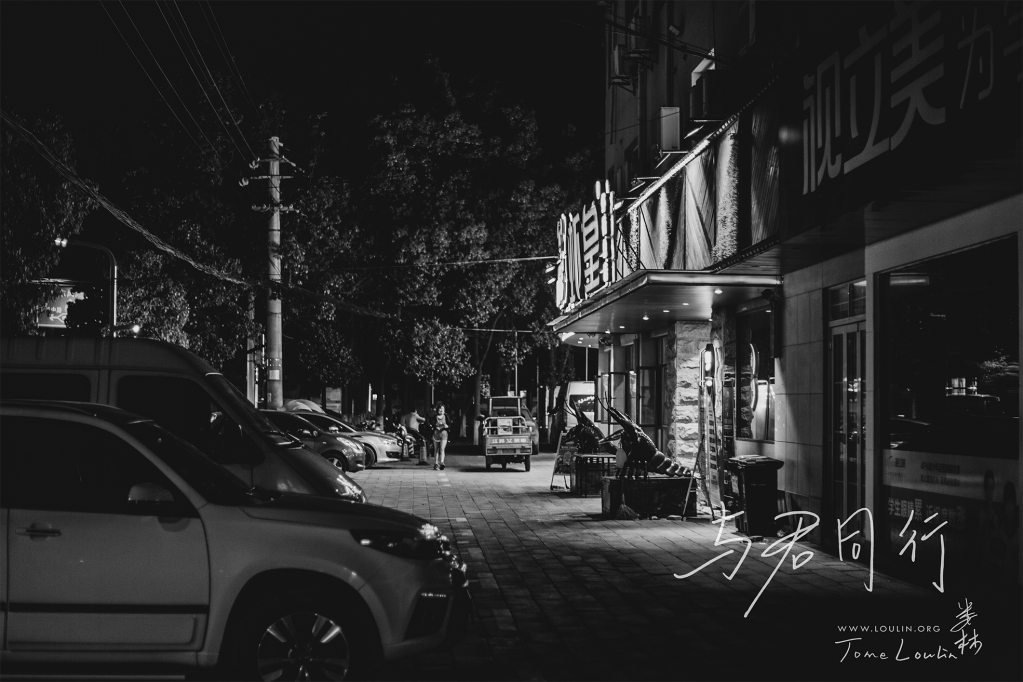
Backstreets are darkened. The impact of the halt of “unessential” business to private sectors remains to be seen. In certain main streets, businesses reopened are grocery stores, barber shops, some mainly-for-taking-out restaurants. If not because of the pandemic, known for the localized cuisine of crayfish, crowded in spring and summer time, restaurants in Qianjiang might already be busy to provide visitors coming from nearby cities the most sought-after dish—Yóumèndàxiā, or Beer-braised Crayfish—while winds breezing through the crowds sitting around dining tables. Now, restaurants serving crayfish are only half filled by customers who wear face masks when talking and strip the masks down while eating then put on again. Hustling no more. Parking lots before the restaurant porches were not fully filled. Dining tables seen from outside remain loosely filled; some who do eat inside seem vigilant.

On the streets, people still wear masks to keep physical distances lest the virus be spread. Children whose gleeful laughter is heard in parks and neighborhoods seem the least affected. Sealing off of the entire Hubei province impacted the supply of fresh food for some and of sanitizing necessities for hospital workers. Unless the state of emergency is lifted entirely, schools and off-school supplement courses won’t be restored soon. For public school teachers adopting strategies to teach students remotely are doing what they would normally do, most teachers working in the private sector are losing opportunities to earn a basic living. The school I work had told us to help students remain engaged by remote teaching via telephones but with the wages delayed severely and sometimes reduced dramatically—though it would be reasonable to see the wages reduced since teachers can no longer teach children in person now—it has never been so hard a time to cope with for me to go through this unprepared breakdown. Under this new reality that private sectors in China are not bailed out and that there were no policies to regard workers affected by pandemic-related redundancy, no thing now may be seen as safe.

No unemployment benefits would be available for those whose companies didn’t cover their social insurance bills since most employers, in private sector, violate labour laws by not signing labour contacts with their employees though in theory they were required to do so. Such cases are not rare in private owned companies. The fact that most people working as part-time workers without knowing that or don’t have social insurances covered by their company is concerning and could shake the pillar of future economic growth. People not working right now are mostly using their savings to buy necessities. If the current economic downturn continues, people might go to find a new way to regard their relationships between working and living. “I might not want to work that hard any more since life is so vulnerable that I want to protect my heath first.”A interviewee said to the New York Times.
“I’ve heard that there might be a recurrence of the virus outbreak.” A senior citizen talked with another while moving her body doing exercises and maintaining physical distance with others.
“America is ravaged by the virus now. Such a horrible thing.” Another uttered lamentably with a flat, low voice.

Most pedestrians passing me by were watching their phones without feeling the need to rise their heads up looking around lest they collide with the electric poles or be tripped by bricks. Once I took my meal out from my grandma’s apartment so hastily that I forgot taking my mask, then walking on the street without wearing one, so strange felt I that I used my collar to cover my face while walking back home. Only being home had I felt relieved.
“It occurred to me that so hot was to wear a mask now.”
“Anyway, No matter how hot the weather is, you get to wear your masks.”
While strolling in an alley, a woman seemed in her thirties chased a fast passing taxi, shouted out “Stop taxi, taxi.” But the driver drove away without stop as if deafened.
Hotels signs in the narrow alley shone vividly as usual as if the good old days come back again; Receptionists inside the hotel lobby seemed idled, sitting behind the reception desk, motionless.
A self-serviced sexual commodities store remained open; ‘open all day’, its shop sign showed. Around corner of a convenience store, a men sitting astride a motor-cycle was smoking cigarette and watching his phone screen concentratedly. Hearing their laughter first, I saw three pedestrians in a row walk forward toward the another end of the way. Then came the road lamps whose light companioned my way home.
